- Home
- Roald Dahl
Innocence Page 13
Innocence Read online
Page 13
He sipped the wine again, and out of the side of my eye I noticed Mike Schofield and how he was leaning farther and farther forward over the table, his mouth slightly open, his small eyes fixed upon Richard Pratt.
‘No. I was wrong. It was not a Talbot. A Talbot comes forward to you just a little quicker than this one; the fruit is nearer to the surface. If it is a ’34, which I believe it is, then it couldn’t be Talbot. Well, well. Let me think. It is not a Beychevelle and it is not a Talbot, and yet – yet it is so close to both of them, so close, that the vineyard must be almost in between. Now, which could that be?’
He hesitated, and we waited, watching his face. Everyone, even Mike’s wife, was watching him now. I heard the maid put down the dish of vegetables on the sideboard behind me, gently, so as not to disturb the silence.
‘Ah!’ he cried. ‘I have it! Yes, I think I have it!’
For the last time, he sipped the wine. Then, still holding the glass up near his mouth, he turned to Mike and he smiled, a slow, silky smile, and he said, ‘You know what this is? This is the little Château Branaire-Ducru.’
Mike sat tight, not moving.
‘And the year, 1934.’
We all looked at Mike, waiting for him to turn the bottle round in its basket and show the label.
‘Is that your final answer?’ Mike said.
‘Yes, I think so.’
‘Well, is it or isn’t it?’
‘Yes, it is.’
‘What was the name again?’
‘Château Branaire-Ducru. Pretty little vineyard. Lovely old château. Know it quite well. Can’t think why I didn’t recognize it at once.’
‘Come on, Daddy,’ the girl said. ‘Turn it round and let’s have a peek. I want my two houses.’
‘Just a minute,’ Mike said. ‘Wait just a minute.’ He was sitting very quiet, bewildered-looking, and his face was becoming puffy and pale, as though all the force was draining slowly out of him.
‘Michael!’ his wife called sharply from the other end of the table. ‘What’s the matter?’
‘Keep out of this, Margaret, will you, please?’
Richard Pratt was looking at Mike, smiling with his mouth, his eyes small and bright. Mike was not looking at anyone.
‘Daddy!’ the daughter cried, agonized. ‘But, Daddy, you don’t mean to say he’s guessed it right!’
‘Now, stop worrying, my dear,’ Mike said. ‘There’s nothing to worry about.’
I think it was more to get away from his family than anything else that Mike then turned to Richard Pratt and said, ‘I’ll tell you what, Richard. I think you and I better slip off into the next room and have a little chat?’
‘I don’t want a little chat,’ Pratt said. ‘All I want is to see the label on that bottle.’ He knew he was a winner now; he had the bearing, the quiet arrogance of a winner, and I could see that he was prepared to become thoroughly nasty if there was any trouble. ‘What are you waiting for?’ he said to Mike. ‘Go and turn it round.’
Then this happened: the maid, the tiny, erect figure of the maid in her white and black uniform, was standing beside Richard Pratt, holding something out in her hand. ‘I believe these are yours, sir,’ she said.
Pratt glanced around, saw the pair of thin horn-rimmed spectacles that she held out to him, and for a moment he hesitated. ‘Are they? Perhaps they are. I don’t know.’
‘Yes, sir, they’re yours.’ The maid was an elderly woman – nearer seventy than sixty – a faithful family retainer of many years’ standing. She put the spectacles down on the table beside him.
Without thanking her, Pratt took them up and slipped them into his top pocket, behind the white handkerchief.
But the maid didn’t go away. She remained standing beside and slightly behind Richard Pratt, and there was something so unusual in her manner and in the way she stood there, small, motionless and erect, that I for one found myself watching her with a sudden apprehension. Her old grey face had a frosty, determined look, the lips were compressed, the little chin was out and the hands were clasped together tight before her. The curious cap on her head and the flash of white down the front of her uniform made her seem like some tiny, ruffled, white-breasted bird.
‘You left them in Mr Schofield’s study,’ she said. Her voice was unnaturally, deliberately polite. ‘On top of the green filing cabinet in his study, sir, when you happened to go in there by yourself before dinner.’
It took a few moments for the full meaning of her words to penetrate, and in the silence that followed I became aware of Mike and how he was slowly drawing himself up in his chair, and the colour coming to his face, and the eyes opening wide, and the curl of the mouth, and the dangerous little patch of whiteness beginning to spread around the area of the nostrils.
‘Now, Michael!’ his wife said. ‘Keep calm now, Michael, dear! Keep calm!’
GALLOPING FOXLEY
* * *
First published in Town & Country
(November 1953)
Five days a week, for thirty-six years, I have travelled on the eight-twelve train to the City. It is never unduly crowded, and it takes me right into Cannon Street Station, only an eleven and a half minute walk from the door of my office in Austin Friars.
I have always liked the process of commuting; every phase of the little journey is a pleasure to me. There is a regularity about it that is agreeable and comforting to a person of habit, and in addition, it serves as a sort of slip-way along which I am gently but firmly launched into the waters of daily business routine.
Ours is a smallish country station and only nineteen or twenty people gather there to catch the eight twelve. We are a group that rarely changes, and when occasionally a new face appears on the platform it causes a certain disclamatory, protestant ripple, like a new bird in a cage of canaries.
But normally, when I arrive in the morning with my usual four minutes to spare, there they all are, these good, solid, steadfast people, standing in their right places with their right umbrellas and hats and ties and faces and their newspapers under their arms, as unchanged and unchangeable through the years as the furniture in my own living-room. I like that.
I like also my corner seat by the window and reading The Times to the noise and motion of the train. This part of it lasts thirty-two minutes and it seems to soothe both my brain and my fretful old body like a good long massage. Believe me, there’s nothing like routine and regularity for preserving one’s peace of mind. I have now made this morning journey nearly ten thousand times in all, and I enjoy it more and more every day. Also (irrelevant, but interesting), I have become a sort of clock. I can tell at once if we are running two, three or four minutes late, and I never have to look up to know which station we are stopped at.
The walk at the other end from Cannon Street to my office is neither too long nor too short – a healthy little perambulation along streets crowded with fellow commuters all proceeding to their places of work on the same orderly schedule as myself. It gives me a sense of assurance to be moving among these dependable, dignified people who stick to their jobs and don’t go gadding about all over the world. Their lives, like my own, are regulated nicely by the minute hand of an accurate watch, and very often our paths cross at the same times and places on the street each day.
For example, as I turn the corner into St Swithin’s Lane, I invariably come head-on with a genteel middle-aged lady who wears silver pince-nez and carries a black briefcase in her hand – a first-rate accountant, I should say, or possibly an executive in the textile industry. When I cross over Threadneedle Street by the traffic lights, nine times out of ten I pass a gentleman who wears a different garden flower in his button-hole each day. He dresses in black trousers and grey spats and is clearly a punctual and meticulous person, probably a banker, or perhaps a solicitor like myself; and several times in the last twenty-five years, as we have hurried past one another across the street, our eyes have met in a fleeting glance of mutual approval and respect.
/> At least half the faces I pass on this little walk are now familiar to me. And good faces they are too, my kind of faces, my kind of people – sound, sedulous, businesslike folk with none of that restlessness and glittering eye about them that you see in all these so-called clever types who want to tip the world upside down with their Labour Governments and socialized medicines and all the rest of it.
So you can see that I am, in every sense of the words, a contented commuter. Or would it be more accurate to say that I was a contented commuter? At the time when I wrote the little autobiographical sketch you have just read – intending to circulate it among the staff of my office as an exhortation and an example – I was giving a perfectly true account of my feelings. But that was a whole week ago, and since then something rather peculiar has happened. As a matter of fact, it started to happen last Tuesday, the very morning that I was carrying the rough draft up to Town in my pocket; and this, to me, was so timely and coincidental that I can only believe it to have been the work of God. God had read my little essay and he had said to himself, ‘This man Perkins is becoming over-complacent. It is high time I taught him a lesson.’ I honestly believe that’s what happened.
As I say, it was last Tuesday, the Tuesday after Easter, a warm yellow spring morning, and I was striding on to the platform of our small country station with The Times tucked under my arm and the draft of ‘The Contented Commuter’ in my pocket, when I immediately became aware that something was wrong. I could actually feel that curious little ripple of protest running along the ranks of my fellow commuters. I stopped and glanced around.
The stranger was standing plumb in the middle of the platform, feet apart and arms folded, looking for all the world as though he owned the place. He was a biggish, thickset man, and even from behind he somehow managed to convey a powerful impression of arrogance and oil. Very definitely, he was not one of us. He carried a cane instead of an umbrella, his shoes were brown instead of black, the grey hat was cocked at a ridiculous angle, and in one way and another there seemed to be an excess of silk and polish about his person. More than this I did not care to observe. I walked straight past him with my face to the sky, adding, I sincerely hope, a touch of real frost to an atmosphere that was already cool.
The train came in. And now, try if you can to imagine my horror when the new man actually followed me into my own compartment! Nobody has done this to me for fifteen years. My colleagues always respect my seniority. One of my special little pleasures is to have the place to myself for at least one, sometimes two or even three stations. But here, if you please, was this fellow, this stranger, straddling the seat opposite and blowing his nose and rustling the Daily Mail and lighting a disgusting pipe.
I lowered my Times and stole a glance at his face. I suppose he was about the same age as me – sixty-two or three – but he had one of those unpleasantly handsome, brown, leathery countenances that you see nowadays in advertisements for men’s shirts – the lion shooter and the polo player and the Everest climber and the tropical explorer and the racing yachtsman all rolled into one; dark eyebrows, steely eyes, strong white teeth clamping the stem of a pipe. Personally, I mistrust all handsome men. The superficial pleasures of this life come too easily to them, and they seem to walk the world as though they themselves were personally responsible for their own good looks. I don’t mind a woman being pretty. That’s different. But in a man, I’m sorry, but somehow or other I find it downright offensive. Anyway, here was this one sitting right opposite me in the carriage, and I was looking at him over the top of my Times when suddenly he glanced up and our eyes met.
‘D’you mind the pipe?’ he asked, holding it up in his fingers. That was all he said. But the sound of his voice had a sudden and extraordinary effect upon me. In fact, I think I jumped. Then I sort of froze up and sat staring at him for at least a minute before I got a hold of myself and made an answer.
‘This is a smoker,’ I said, ‘so you may do as you please.’
‘I just thought I’d ask.’
There it was again, that curiously crisp, familiar voice, clipping its words and spitting them out very hard and small like a little quick-firing gun shooting out raspberry seeds. Where had I heard it before? And why did every word seem to strike upon some tiny tender spot far back in my memory? Good heavens, I thought. Pull yourself together. What sort of nonsense is this?
The stranger returned to his paper. I pretended to do the same. But by this time I was properly put out and I couldn’t concentrate at all. Instead, I kept stealing glances at him over the top of the editorial page. It was really an intolerable face, vulgarly, almost lasciviously handsome, with an oily salacious sheen all over the skin. But had I or had I not seen it before sometime in my life? I began to think I had, because now, even when I looked at it I felt a peculiar kind of discomfort that I cannot quite describe – something to do with pain and with violence, perhaps even with fear.
We spoke no more during the journey, but you can well imagine that by then my whole routine had been thoroughly upset. My day was ruined; and more than one of my clerks at the office felt the sharper edge of my tongue, particularly after luncheon, when my digestion started acting up on me as well.
The next morning, there he was again standing in the middle of the platform with his cane and his pipe and his silk scarf and his nauseatingly handsome face. I walked past him and approached a certain Mr Grummitt, a stockbroker who has been commuting with me for over twenty-eight years. I can’t say I’ve ever had an actual conversation with him before – we are rather a reserved lot on our station – but a crisis like this will usually break the ice.
‘Grummitt,’ I whispered. ‘Who’s the bounder?’
‘Search me,’ Grummitt said.
‘Pretty unpleasant.’
‘Very.’
‘Not going to be a regular, I trust.’
‘Oh God,’ Grummitt said.
Then the train came in.
This time, to my great relief, the man got into another compartment.
But the following morning I had him with me again.
‘Well,’ he said, settling back in the seat directly opposite. ‘It’s a topping day.’ And once again I felt that slow uneasy stirring of the memory, stronger than ever this time, closer to the surface but not yet quite within my reach.
Then came Friday, the last day of the week. I remember it had rained as I drove to the station, but it was one of those warm sparkling April showers that last only five or six minutes, and when I walked on to the platform, all the umbrellas were rolled up and the sun was shining and there were big white clouds floating in the sky. In spite of this, I felt depressed. There was no pleasure in this journey for me any longer. I knew the stranger would be there. And sure enough, he was, standing with his legs apart just as though he owned the place and this time swinging his cane casually back and forth through the air.
The cane! That did it! I stopped like I’d been shot.
‘It’s Foxley!’ I cried under my breath. ‘Galloping Foxley! And still swinging his cane!’
I stepped closer to get a better look. I tell you I’ve never had such a shock in all my life. It was Foxley all right. Bruce Foxley, or Galloping Foxley as we used to call him. And the last time I’d seen him, let me see – it was at school and I was no more than twelve or thirteen years old.
At that point the train came in, and heaven help me if he didn’t get into my compartment once again. He put his hat and cane up on the rack, then turned and sat down and began lighting his pipe. He glanced up at me through the smoke with those rather small cold eyes and he said, ‘Ripping day, isn’t it. Just like summer.’
There was no mistaking the voice now. It hadn’t changed at all. Except that the things I had been used to hearing it say were different.
‘All right, Perkins,’ it used to say. ‘All right, you nasty little boy. I am about to beat you again.’
How long ago was that? It must be nearly fifty years. Extraordinary, though, how littl
e the features had altered. Still the same arrogant tilt of the chin, the flaring nostrils, the contemptuous staring eyes that were too small and a shade too close together for comfort; still the same habit of thrusting his face forward at you, impinging on you, pushing you into a corner, and even the hair I could remember – coarse and slightly wavy, with just a trace of oil all over it, like a well-tossed salad. He used to keep a bottle of green hair mixture on the side table in his study – when you have to dust a room you get to know and to hate all the objects in it – and this bottle had the Royal coat of arms on the label and the name of a shop in Bond Street, and under that, in small print, it said ‘By Appointment – Hairdressers To His Majesty King Edward VII’. I remember that particularly because it seemed so funny that a shop should want to boast about being hair-dresser to someone who was practically bald – even a monarch.
And now I watched Foxley settle back in his seat and begin reading his paper. It was a curious sensation, sitting only a yard away from this man who fifty years before had made me so miserable that I had once contemplated suicide. He hadn’t recognized me; there wasn’t much danger of that because of my moustache. I felt fairly sure I was safe and could sit there and watch him all I wanted.
Looking back on it, there seems little doubt that I suffered very badly at the hands of Bruce Foxley my first year in school, and strangely enough, the unwitting cause of it all was my father. I was twelve and a half when I first went off to this fine old public school. That was, let me see, in 1907. My father, who wore a silk topper and morning coat, escorted me to the station, and I can remember how we were standing on the platform among piles of wooden tuck-boxes and trunks and what seemed like thousands of very large boys milling about and talking and shouting at one another, when suddenly somebody who was wanting to get by us gave my father a great push from behind and nearly knocked him off his feet.

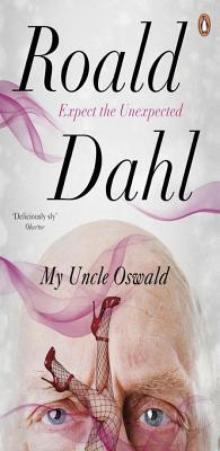 My Uncle Oswald
My Uncle Oswald The Best of Roald Dahl
The Best of Roald Dahl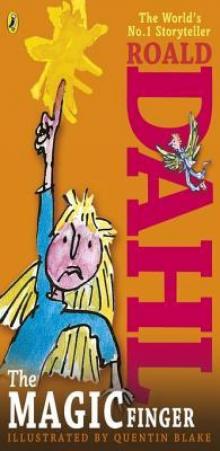 The Magic Finger
The Magic Finger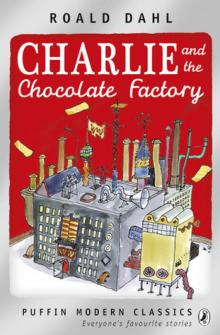 Charlie and the Chocolate Factory
Charlie and the Chocolate Factory Fantastic Mr Fox
Fantastic Mr Fox Matilda
Matilda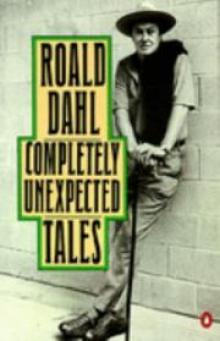 Completely Unexpected Tales: Tales of the Unexpected. More Tales of the Unexpected
Completely Unexpected Tales: Tales of the Unexpected. More Tales of the Unexpected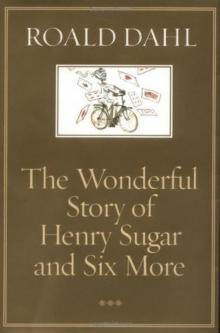 The Wonderful Story of Henry Sugar and Six More
The Wonderful Story of Henry Sugar and Six More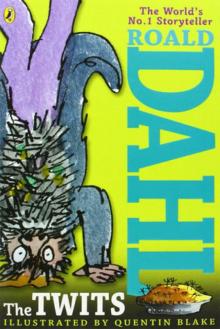 The Twits
The Twits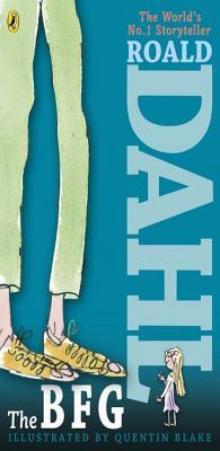 The BFG
The BFG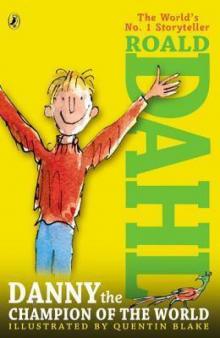 Danny the Champion of the World
Danny the Champion of the World The Witches
The Witches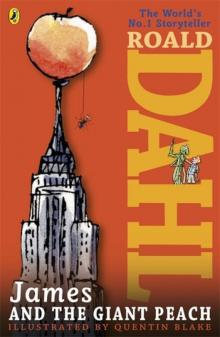 James and the Giant Peach
James and the Giant Peach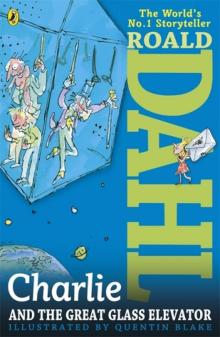 Charlie and the Great Glass Elevator
Charlie and the Great Glass Elevator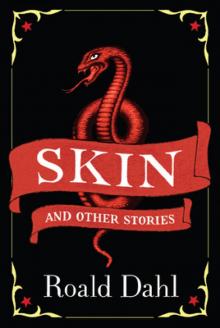 Skin and Other Stories
Skin and Other Stories Kiss Kiss
Kiss Kiss Switch Bitch
Switch Bitch The Giraffe and the Pelly and Me
The Giraffe and the Pelly and Me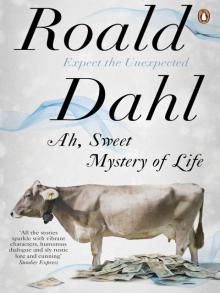 Ah, Sweet Mystery of Life
Ah, Sweet Mystery of Life Fear
Fear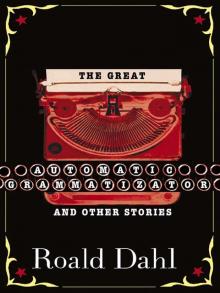 The Great Automatic Grammatizator and Other Stories
The Great Automatic Grammatizator and Other Stories Someone Like You
Someone Like You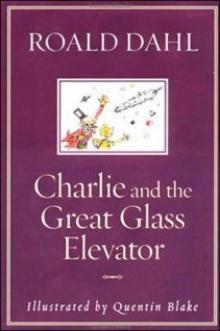 Charlie and the Great Glass Elevator c-2
Charlie and the Great Glass Elevator c-2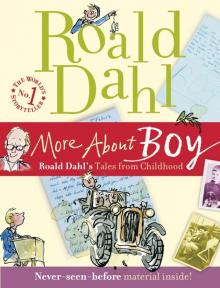 More About Boy
More About Boy Tales of the Unexpected
Tales of the Unexpected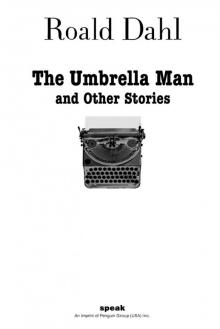 The Umbrella Man and Other Stories
The Umbrella Man and Other Stories Dirty Beasts
Dirty Beasts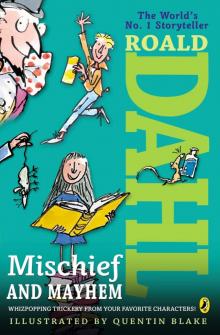 Roald Dahl's Mischief and Mayhem
Roald Dahl's Mischief and Mayhem The Collected Short Stories of Roald Dahl, Volume 1
The Collected Short Stories of Roald Dahl, Volume 1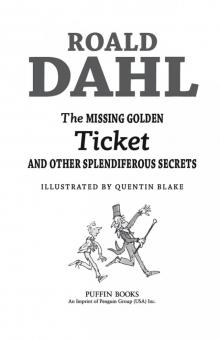 The Missing Golden Ticket and Other Splendiferous Secrets
The Missing Golden Ticket and Other Splendiferous Secrets Billy and the Minpins
Billy and the Minpins Over to You
Over to You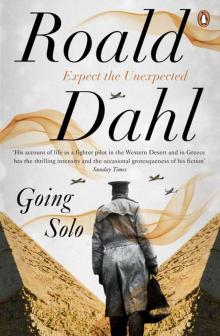 Going Solo
Going Solo Deception
Deception War
War Man from the South ee-3
Man from the South ee-3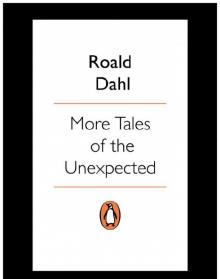 More Tales of the Unexpected
More Tales of the Unexpected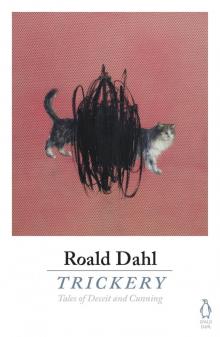 Trickery
Trickery Rhyme Stew
Rhyme Stew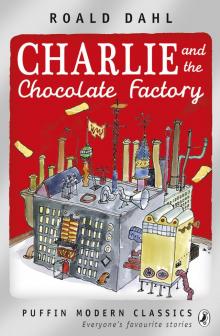 Charlie and the Chocolate Factory (Puffin Modern Classics relaunch)
Charlie and the Chocolate Factory (Puffin Modern Classics relaunch)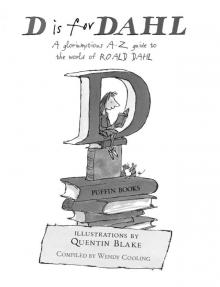 D is for Dahl
D is for Dahl Roald Dahl Whoppsy-Whiffling Joke Book
Roald Dahl Whoppsy-Whiffling Joke Book Spotty Powder and other Splendiferous Secrets
Spotty Powder and other Splendiferous Secrets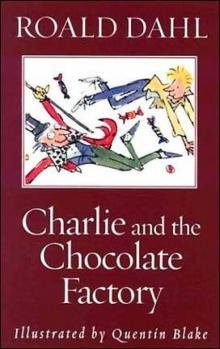 Charlie and the Chocolate Factory c-1
Charlie and the Chocolate Factory c-1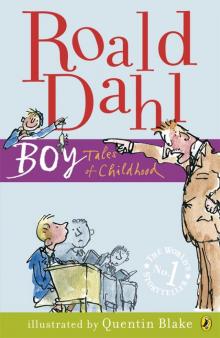 Boy
Boy Completely Unexpected Tales
Completely Unexpected Tales Madness
Madness Innocence
Innocence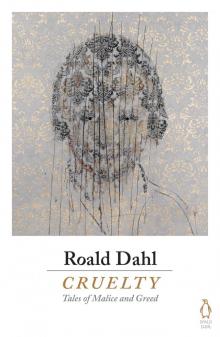 Cruelty
Cruelty George's Marvellous Medicine
George's Marvellous Medicine